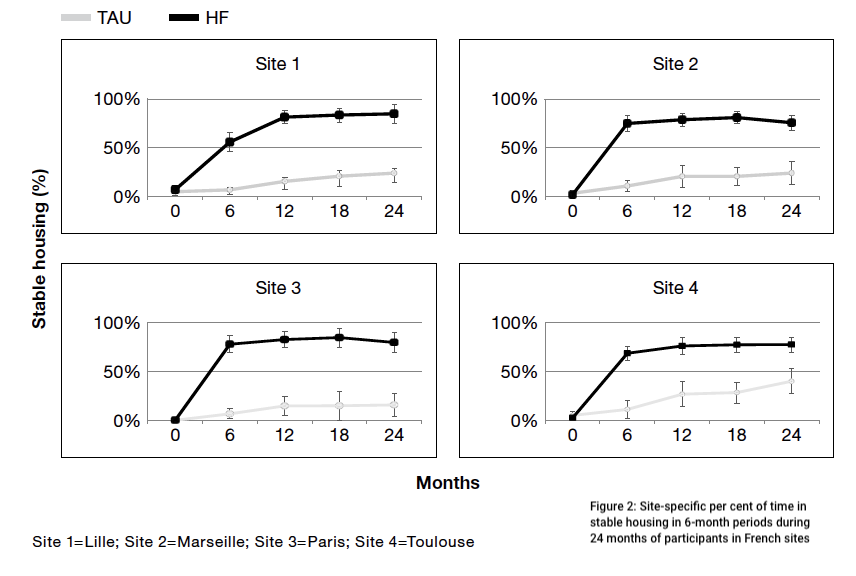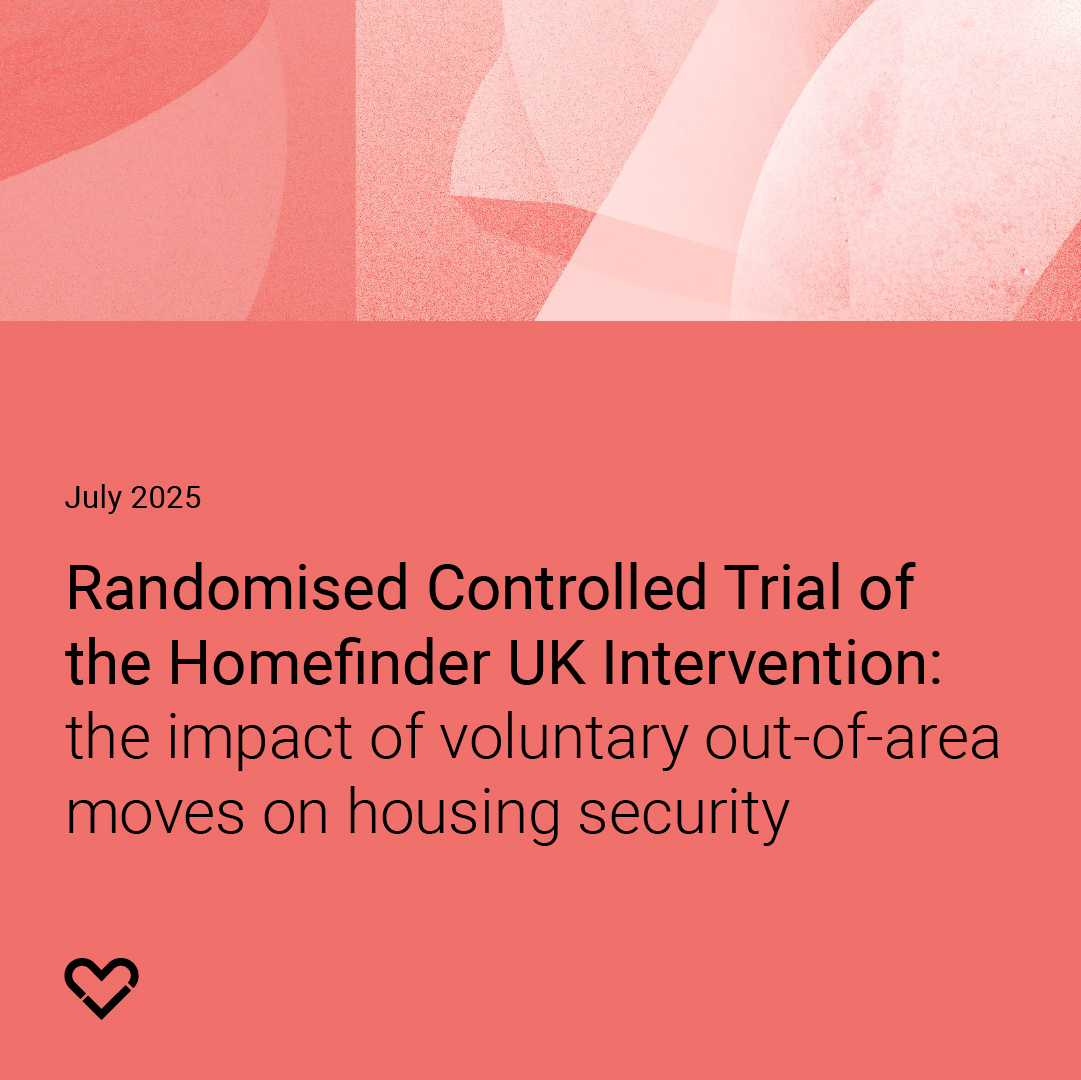European Journal of Homelessness: A Tale of Two Countries: A Comparison of Multi-Site Randomised Controlled Trials
Outline of the study
This research compares the results of two major randomised control trials (RCTs) in Canada and France that tested whether providing Housing First with Assertive Community Treatment (ACT) is a more effective approach to help people with serious mental illness to exit homelessness.
The Canadian trial involved 2,148 participants across 5 cities of which 950 were participants with high needs who received HF with ACT or usual care. Similarly, the French trial involved 703 participants who received Housing First with ACT or usual care across 4 cities. Both trials followed participants for 24 months.
The Housing First approach gives people experiencing homelessness a place to live right away, without requiring them to be ’housing ready’ or to complete treatment programmes first. As well as effectiveness, the study examines programme costs, and whether the evidence convinced governments to expand Housing First in other national contexts.
Findings in brief:
- Canadian participants were more likely to be absolutely homeless, have substance use problems and PTSD. The French sample contained more male participants, people with higher levels of education, depression and psychotic disorders
- Housing First with ACT participants in all cities in both countries sustained housing for significantly more time than those receiving ‘usual care’
- Housing stability of participants increased sharply in first 6 months of the Housing First tenancy in both trials; this was maintained at high levels throughout the study period
- Service users in the Canadian trail rated Housing First with ACT quality more highly than those receiving ‘usual care’
- Participants in both countries indicated a reduction in average hospital days; Canadian participants also had a significant reduction in emergency room visits
- There was high fidelity to programme elements of Housing First with ACT in both countries. Both countries showed highest fidelity in housing choice and structure, separating housing from services and service philosophy, though scored lower on fidelity to to array of services available to participants.
- In Canada: 69% of Housing First with ACT costs (€13,160 [2016] annually per participant) were offset by reduced use of hospitals, shelters, and criminal justice services. In France, Housing First with ACT costs €13,160 [2016] per participant and the cost offset was more than 100%, with Housing First participants costing €217 [2016] less than control group participants over 24 months
- There were limited differences in both countries on non-housing outcomes between Housing First and usual care. Canadian participants in both Housing First with ACT and usual care groups showed improvements in community functioning, quality of life, and mental health symptoms, In France, Housing First participants showed significantly greater improvements in psychological well-being, mental health functioning and autonomy
Recommendations in brief:
- Conduct regular fidelity assessments to ensure programme maintain adherence to Housing First principles, especially in relation to service array that is available to participants
- Carry out Housing First trials which test fidelity and effectiveness in different healthcare and social service contexts and with other groups of people experiencing homelessness
- Consider adapting Housing First outcome measures based on local operating contexts
- Provide training and technical assistance to maintain programme quality during scaling up of programs
- Create communities of practice to share knowledge and maintain implementation standards across sites. Document cost savings from reduced use of public services, including hospitals, emergency shelters, and the criminal justice system and long-term projections of cost-savings. Utilise this data to support the business case for Housing First expansion to policymakers
- Explore why non-housing outcomes indicate limited differences between Housing First and usual care. Enrich support provided by Housing First programs by integrating into services evidence-based interventions such as supported employment, strengths-based case management, and social prescribing
- Use trial results to inform policy and strategy development, including consideration of expansion plans for Housing First in local authority areas and a future requirement to allocate a proportion of homelessness funding for Housing First projects.







.jpg)

